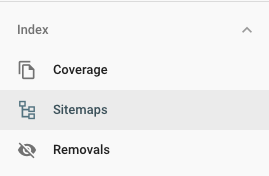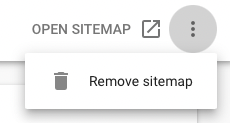
Introduction
When it comes to optimizing your website’s performance on search engines, mastering Google Search Console is paramount. One common challenge faced by webmasters is efficiently remove sitemap from Google Search Console. We’ll take you through the process step-by-step in this comprehensive SEO services New Jersey tutorial, ensuring that your website remains in excellent condition.
What Is An Xml Sitemap?
All the pages on your website are enumerated in an XML sitemap. It is a structured format that informs Google of the location of every page on your website, its frequency of updates, and if it has previously been indexed or crawled.
Understanding The Importance Of Sitemaps
Before diving into the removal process, let’s briefly touch on why sitemaps matter. A sitemap is essentially a roadmap for search engines, guiding them through the various pages on your website. Even though sitemaps are essential for indexing, there are situations in which they must be removed, including when reorganizing a website or eliminating certain material.
The Step-by-step Guide
1. Accessing Google Search Console
Begin by logging into your Google Search Console account. Navigate to the property associated with the website for which you want to remove the sitemap.

2. Locating The Sitemaps Section
Locate the “Sitemaps” tab and click on it from the menu on the left. For the chosen property, a list of all sitemap submissions is shown in this section.

3. Identifying The Target Sitemap
Scroll through the list to identify the sitemap you want to remove. Click on it to reveal more details, including indexed pages and any potential errors.
4. Removal Option: Temporary Hide
If your intention is to temporarily hide the sitemap from search results, you can use the “Remove” tool within Google Search Console. Specify the temporary removal period and submit the request.
5. Removal Option: Delete The Sitemap
For a more permanent removal, you can delete the sitemap directly from your website’s server. Once deleted, Google will automatically detect the absence of the sitemap during its next crawl.

6. Verifying Removal
After implementing your chosen removal method, it’s crucial to verify its success. Return to the “Sitemaps” section in Google Search Console and confirm that the targeted sitemap is no longer listed.

Best Practices For Sitemap Removal
1. Communicate Changes To Google
Inform Google about any structural changes or removals using the “URL Removals” tool in the Search Console. This ensures the search engine is aware of your site’s evolving landscape.
2. Update Robots.txt File
If you’ve opted for manual removal, update your website’s robots.txt file to reflect the changes. This simple step helps search engines understand which parts of your site to crawl.
3. Monitor Indexing Status
Keep a close eye on the indexing status of your website after sitemap removal. Regularly check Google Search Console for any unexpected errors or issues.
Common Pitfalls To Avoid
1. Incomplete removals
Ensure that the removal process is thorough. Incomplete removals can lead to confusion for both users and search engines.
2. Ignoring Communication
Failure to communicate changes to Google may result in outdated search results. Take advantage of the available tools to keep search engines informed.
Conclusion
Mastering the art of removing a sitemap from Google Search Console is an essential skill for website administrators. Whether it’s a temporary adjustment or a permanent removal, following the outlined steps ensures a smooth transition without compromising your site’s search engine visibility.
Read More Blog : Which Goals Are Available In Google Analytics
